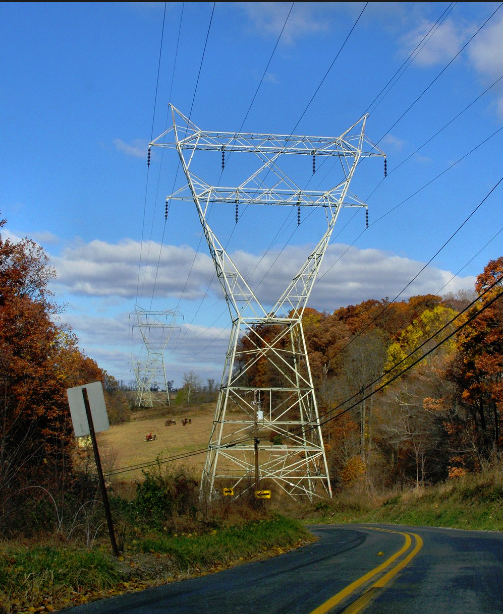Whether you are a home owner in the midst of a kitchen renovation, a business owner considering an office expansion, or otherwise involved in a construction project, it is important to understand who gets paid and when. By doing so, you may avoid a construction lien being placed on your property or, conversely, successfully use the lien statutes to ensure that you get paid for you work. What is a construction lien? Construction liens, also known as mechanic’s liens, are legal claims on real property, often used by builders, contractors, suppliers, or subcontractors who have not been paid…
-
-
Haunted House Law & the Duty to Disclose
It’s a tale as old as time: newlyweds visit an open house. They fall in love with the ancient ivied walls and quaint secret passageways, only to learn that a gruesome murder took place in the house years before and now the halls are haunted by a poltergeist that won’t leave the premises. According to the law, only some states require property owners to disclose whether they live in a “haunted house.” In other states, purchasers may discovery this after the sale when their only recourse is to hire an exorcist and hope for the best. Most states require…
-
Changing Domicile: How Mental Capacity Factors In
Domicile is a relatively straight forward legal concept that combines the place where a person permanently resides with where he intends to remain. However, what happens when a person who has been adjudicated incompetent desires to permanently move. Can he possess the requisite intent to change his domicile in legal terms? The Georgia Court of Appeals recently took up this question in Estate of Milton Theophilus Pond, II. In the case, a probate court granted Milton Pond guardianship of his son, M.P., who was an adult man with autism. Since M.P.’s childhood, he lived with his mother,…
-
Bad Contractors: Five Ways to Avoid Them and Six Steps to Take if it is Too Late
When hiring a contractor for a residential or commercial construction or renovation project, there are many qualified, dependable contractors from which to choose. However, there is always the risk of hiring someone who will (1) do a poor job; (2) take much longer than expected; or (3) both. There are a few things you can do to try to avoid such contractors and several steps you should take once you discover the contractor you hired isn’t doing a good job. Five Ways to Avoid Bad Contractors: Hire only a licensed contractor. If you hire an unlicensed contractor, you run the risk they do not…
-
Probate Basics: Questions and Answers
Losing a loved one is an emotional and difficult time, even without handling the legalities and formalities of the deceased’s affairs. When you find yourself responsible for handling the deceased’s business at the end of death, where do you start? This post aims to explain the basics of probate, how it works, and what you should do in North Carolina under typical circumstances. What is Probate? Probate is the official legal process by which a will is honored. When a will is probated, an executor (sometimes called a personal representative) is appointed to administer the estate and carry…
-
Six Basic Questions and Answers about Executors
If you have a will or have ever dealt with estate administration, you are probably familiar with the term “executor.” However, most people don’t know what an executor is or what the executor’s role is. Additionally, what do you do if you suspect an executor is behaving fraudulently or contrary to the deceased person’s wishes? What is an executor? An executor is a person or institution appointed to carry out the terms of a person’s will. They are appointed by the person who wrote the will, the testator, to conclude the business and financial arrangements the testator had…
-
A Twenty-Year Statute of Limitations for Challenges to Easement Encroachments
Easements in North Carolina just got a little easier to maintain and, if necessary, litigate. The Supreme Court of North Carolina ruled in August 2016 that easement holders have twenty years within which to file a suit for the removal of easement encroachments. This overruled previous case law requiring easement holders to file a suit within six years.[1] There are many different types of easements, but put simply, easements are a right to traverse or otherwise use someone else’s land for a specified purpose. For example, one could have an easement to cross over their neighbor’s land to access a home or a fishing pond.…
-
Seven Rules for Being an Attorney-In-Fact
Your aging parents just appointed you as their attorney-in-fact– now what? It is important to keep in mind a few simple rules to stay within the bounds of the law. Rule #1: Act in the principal’s best interests. The principal is the person that appoints the attorney-in-fact and specifies the financial authority they possess. Acting in the principal’s best interest is the golden rule of being an attorney-in-fact. For every situation in which you may exercise your rights in that capacity, ask yourself these three (3) questions: Is taking this action in the best interest of the…
-
Legal Standing: As Illustrated by an Indonesian Monkey Named Naruto
To bring a lawsuit in the United States, one must have “standing.” This legal principle essentially requires the person or company filing a lawsuit have an interest in a dispute. That interest could involve a piece of property subject to an easement, a Constitutional right, or an injury suffered at the fault of another. In an ongoing U.S. Court of Appeals case nicknamed the “monkey selfie” case, defense attorney Andrew Dhuey argues a monkey cannot satisfy the requirement of standing, saying, “monkey see, monkey sue is not good law – at least not in the Ninth Circuit.” Despite the fact that the case was dubbed…







